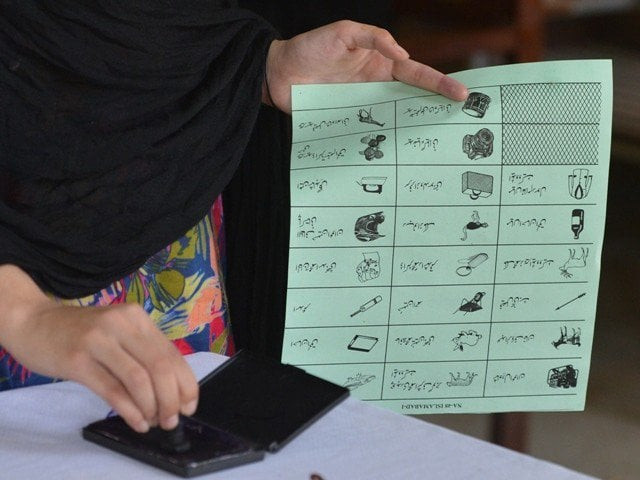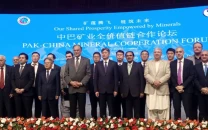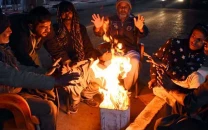General elections on July 25 – it’s official
President Mamnoon signs summary to finalise the date

ECP had recommended holding upcoming polls between July 25 and July 27. PHOTO: FILE
In this regard, President Mamnoon Hussain on Saturday signed a summary for holding the general election in the country, an official of the Presidency has confirmed.
The Election Commission of Pakistan (ECP) last Monday sent the summery to the president, requesting him to pick polls day on one of the dates from July 25 to July 27.
The tenure of the current government will expire on May 31. With the announcement of the general election date, it is clear now that the incumbent government will not dissolve the assemblies before May 31 midnight.
According to the Constitution, if the assemblies are dissolved before the completion of their full five-year term – in the present case even just few hours before the May 31st midnight – elections have to be held within 90 days of the dissolution of the assemblies.
Deadlock persists: Caretaker PM issue likely to go to the ECP
Polls have to be organised within 60 days if the assemblies complete their full five-year term.
This is the third time since 2002 general election that the assemblies will be completing their full term and power would be handed over from one elected government to another.
As per Section 57(1) of the Elections Action Act 2017, the ECP, the top elections supervisory body, sends the president summary to announce a date for the general election.
Since the term of the assemblies would be expiring next week, a caretaker set-up will be installed at the Center and the provinces to run day-to-day affairs of the government till the time new assemblies are elected.
The talks between Prime Minister Shahid Khaqan Abbasi and Leader of Opposition in the National Assembly Khursheed Shah over caretaker prime minister have been deadlocked. The two had held half a dozen meetings but have so far failed to come up with a consensus name.
ECP recommends July 25-27 dates for general elections
If the deadlock persists and the two failed to take a joint decision till Monday, National Assembly Speaker Ayaz Sadiq will form an eight-member parliamentary committee to decide the matter within three days once it is notified.
Abbasi and Shah will send two names each to the committee that would select one candidate for the post. The panel will have four members each from the treasury and the opposition from both houses of parliament.
If the committee also fails to evolve a consensus within the constitutional timeframe, the matter would be referred to the Election Commission of Pakistan (ECP) for appointing a caretaker prime minister. The same is the procedure for caretaker chief ministers in case of provinces.
Till the time a caretaker prime minister is selected and takes oath, the incumbent prime minister can continue. The same is the case with chief ministers in the four provinces.
In the final electoral list for the July 2018 general election compiled by the election authorities, there are a total of 105.95 million voters in the country.
Among them 59.2 million are male voters and 46.7 million female, showing an ever-increasing gender gap of over 12.5 million.
Punjab, the biggest province in terms of population and number of seats in the National Assembly, has 60.6 registered voters – 33.67 million among them are male and 26.99 are female.
In Sindh’s 22.39 million registered voters, 12.43 million are male and 9.95 million are female.
Khyber-Pakhtunkhwa has 15.31 million voters, having 8.7 million male and 6.61 million female voters in the new updated electoral rolls.
In Balochistan, there are 4.2 million voters – 2.4 million among them are male and 1.8 million female.
Fata has 2.5 million voters – 1.5 million male and one million female voters, while Islamabad Capital Territory has 0.76 million voters, including 407,463 male and 357,885 female voters.
The ECP has already notified delimitations and appointed returning officers to supervise the polls. District returning officers (DROs) and returning officers (ROs) have been taken mostly from the lower judiciary while assistant returning officers (AROs) from the bureaucracy – mainly the district administration group.



















COMMENTS
Comments are moderated and generally will be posted if they are on-topic and not abusive.
For more information, please see our Comments FAQ